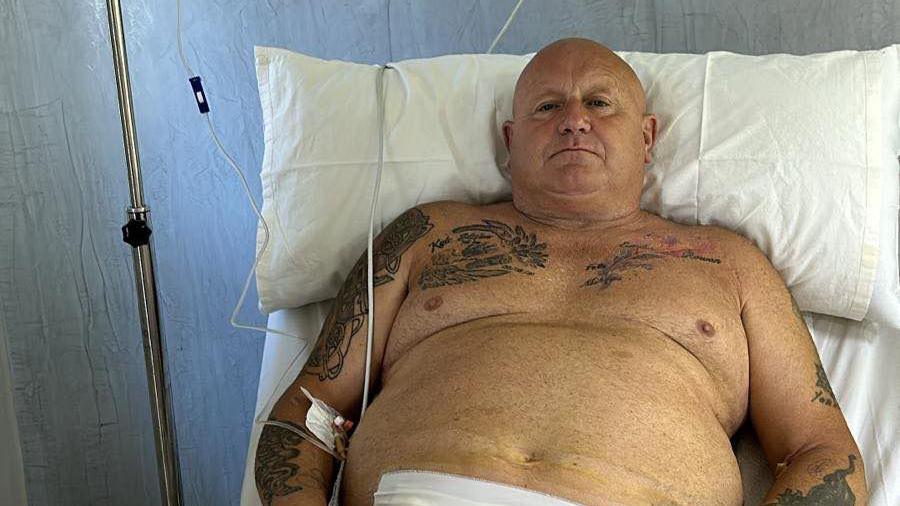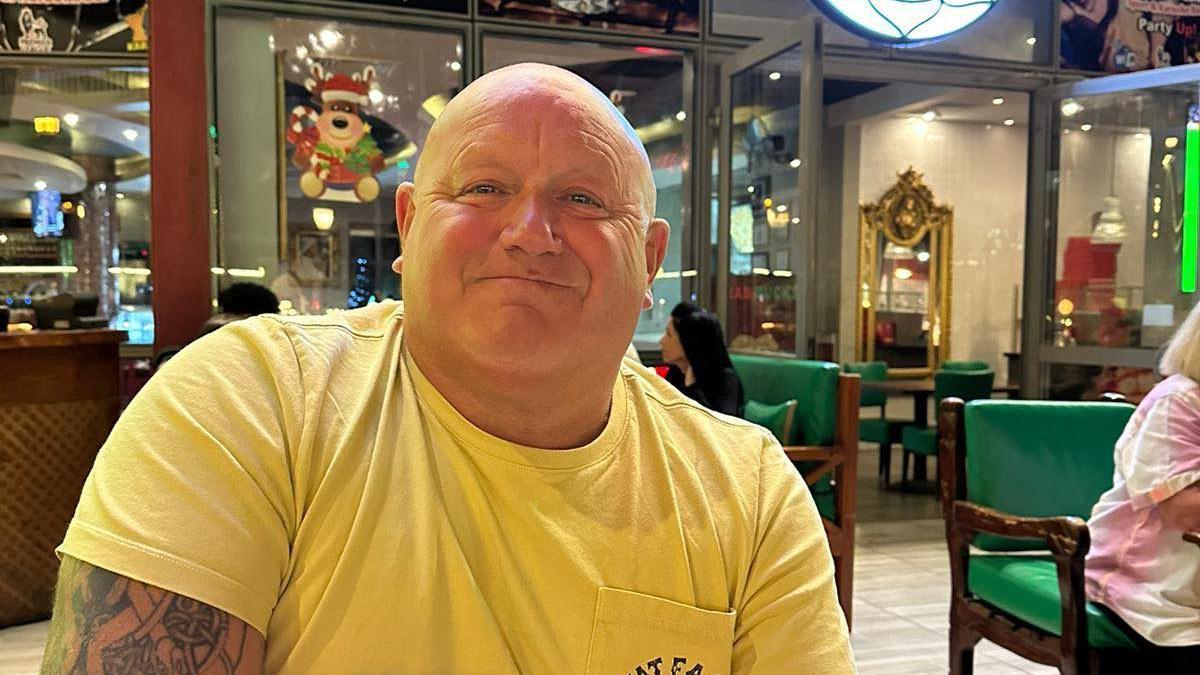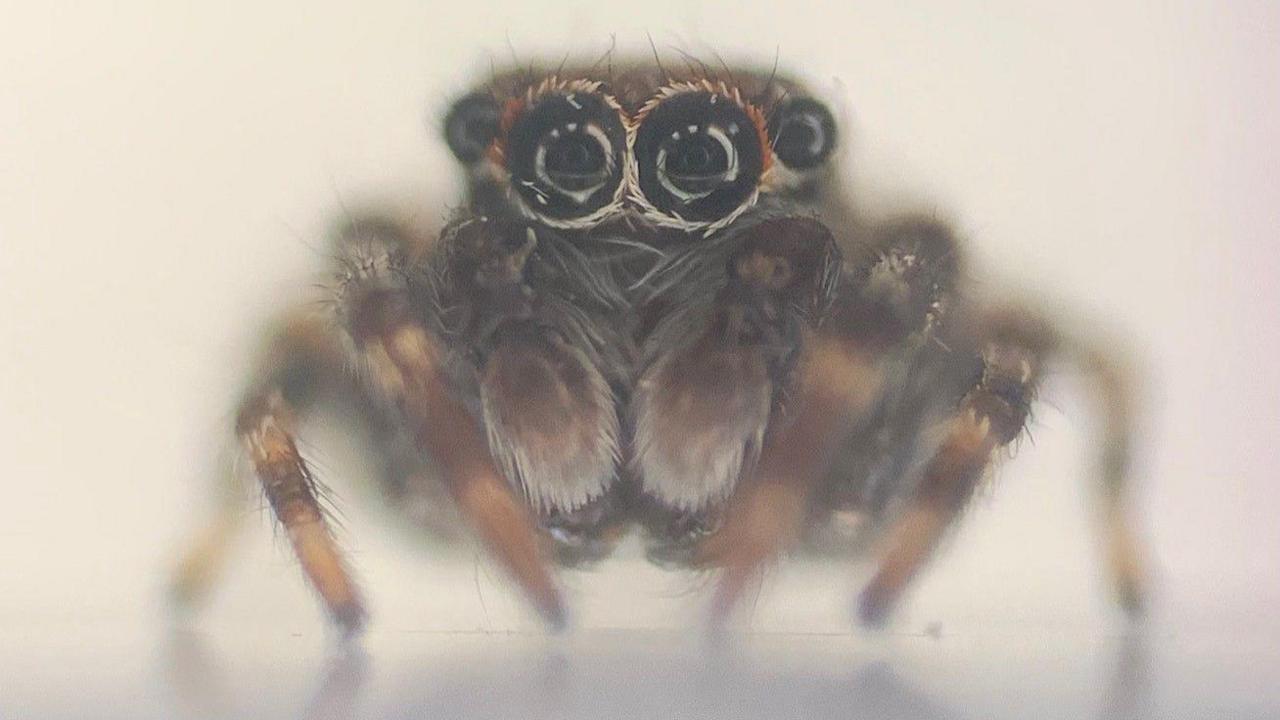Man developed flesh-eating disease after bite

Nigel Hunt believes he may have been bitten by a spider while still at home
- Published
An Isles of Scilly resident has undergone emergency surgery while on holiday in Egypt after being bitten before his flight.
Nigel Hunt, who lives on St Mary's, believes he was bitten on his stomach while in bed at home on 30 August.
The 59-year-old window installer said the bite "wasn't painful" and he had originally "felt OK", but became "violently sick" on his way to his holiday in Egypt four days later.
He said his stomach was operated on after doctors feared an abscess had formed but it was eventually diagnosed as necrotising fasciitis, also known as the "flesh-eating disease", external.

Mr Hunt described the bite as just a "nip" before he was left needing surgery a week later
Mr Hunt, who believes the culprit may have been a spider, said the bite to his stomach felt like a "nip".
"I felt a nip just below the belly button and my first reaction was to jump out of bed to see what it was," he recalled.
After being unable to find what may have bitten him he said he continued his day as normal, catching the ferry to Penzance before travelling to Bristol Airport.
'Violently sick'
He said there was redness near the bite, which he treated with antihistamines and painkillers, but he otherwise felt normal before waiting to board his flight.
"That's when I started to feel nauseous and ended up in the toilets being violently sick," he said.
"I spent the next six hours with my head in numerous sick bags."
On arrival in Egypt, he said he went to a pharmacy where he was prescribed antihistamine cream for bites.
The next day, he started feeling unwell again so he went to a clinic where he was given an injection.
His sickness subsided but he was admitted to hospital three days later, he said.
Mr Hunt said doctors diagnosed him with necrotising fasciitis, which the NHS describes as a "life-threatening infection that can happen if a wound gets infected".
He is expected to be discharged within a couple of days but said his stomach was still an "open wound" requiring treatment for up to two weeks.
Expert's opinion
Dr Tim Cockerill, senior lecturer in Natural History at Falmouth University, said it would be "impossible to identify the original cause of the wound" once the infection had set in.
He did note that necrotising fasciitis was caused by a bacterial infection in a wound, so "not something caused directly by a bite from a spider".
Dr Cockerill explained: "Over the past few years in the media this kind of infection has come to be blamed on spiders, even when there’s no evidence of a spider being involved."
He said this had led to a "popular belief" - even among some doctors and nurses - that such infections were a result of spider bites, but added such bites were "very rare" in the UK.
Follow BBC Cornwall on X (formerly Twitter), external, Facebook, external and Instagram, external. Send your story ideas to spotlight@bbc.co.uk, external.
Related topics
- Published3 May 2024
